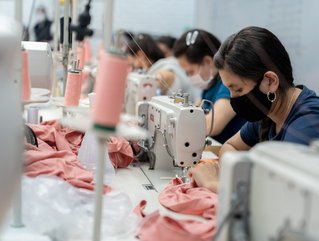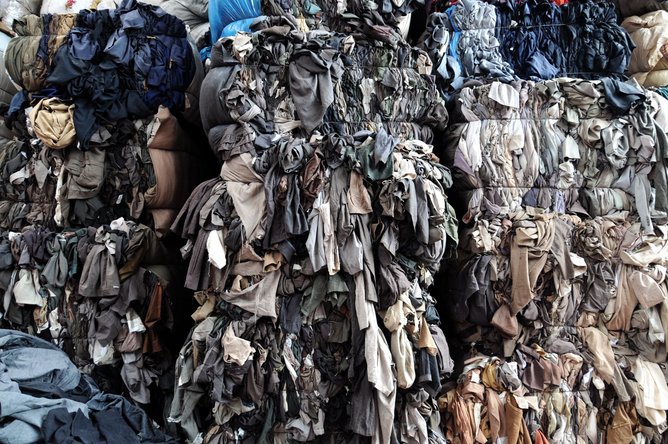Learning Sustainability with The Woolmark Company

The Woolmark Company is expanding its leading education courses into the realm of sustainability. The global authority on wool establishes both representation of and connection between woolgrowers, brands and consumers, ensuring and promoting the authenticity and quality of wool fibre.
Aligning with this commitment, The Woolmark Company’s eponymous Woolmark Learning Center now houses its new Sustainability and Wool course, adding to its significant online course collection now totalling five programmes and 13 courses delivering industry specific education for students through to trade specialists. The Sustainability and Wool course consists of six modules, freely available for online access to explore interactive content on wool’s sustainable relationship to people, planet and prosperity.
People, Planet and Prosperity
A cornerstone of the new Sustainability and Wool course is the concept of the 3P’s: people, planet and prosperity. These pillars address sustainability considerations through the lens of the global supply chain’s impact, emphasising sustainable solutions that ensure a socially, economically and environmentally prosperous future. Throughout the course learners will explore opportunities and solutions for creating products with a more positive legacy, and how designers and businesses can support consumers to reduce their environmental and social impacts. Industry leaders including Livia Firth, Clare Press, Charles Ross, Leanne Kemp, Dr Stephen Wiedemann and Dr Charles Massy provide exclusive insights into the challenges and opportunities of sustainability in the textile and fashion industry throughout the course.
Global Frameworks for Sustainable Development
To develop learners’ understanding of sustainability-centric concepts, the Sustainability and Wool course modules explore global frameworks and systems that can support sustainable development. Reflecting on the impact of consultation and agreement between nations and industry experts, modules cover global frameworks surrounding traceability and mapping supply chains, and investigate policy, legislation, and governance frameworks such as the United Nations Sustainable Development Goals (SDG). Frameworks and strategies are explored in both the Australian context including the Australian wool industry’s Wool 2030 Strategy, through to sustainability policy shifts in Europe. A comprehensive analysis of the global sustainability framework milieu, the Sustainability and Wool course cultivates an expansive global understanding of sustainable development and its relationship to wool.

The Circular Economy
The circular economy is undoubtedly a popular subject in the fashion and textiles industry and has a dedicated module in the Sustainability and Wool course. The module discusses the complex textile and garment supply chain, analysing the “life” of a fashion garment and how the current environment falls short of a circular economy. Learners are introduced to circular design and circular economy principles, where the resilient, restorative and regenerative replace unsustainable and wasteful linear systems. Wool is explored as a unique opportunity as an inherently circular fibre, reviewed in the context of circularity ambitions developed by industry contributors such as the Ellen MacArthur institute. A timely evaluation of the need for circularity, the Sustainability and Wool course illustrates ambitious circular sustainable structures and natural systems to secure the future for all.
With the goal to provide the necessary educational resources to benefit people, planet and prosperity, the Sustainability and Wool course is a compilation of learning insights on frameworks and policies, circular principles, natural systems and more to encourage movement towards a sustainable future. Freely available online at The Woolmark Learning Center, successful coursework completion will result in accreditation by digital badge issuer, Credly, for display on digital portfolios.
Disclosure: This article is an advertorial and monetary payment was received from Woolmark. It has gone through editorial control and passed the assessment for being informative.






